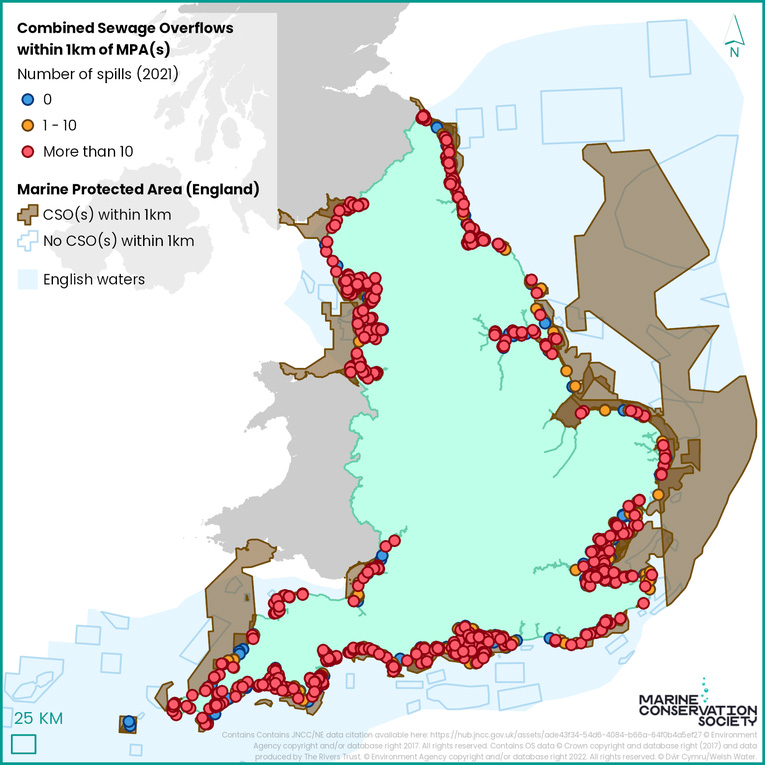High Court challenge against Defra and Environment Agency
An Essex oyster farmer and others have taken legal action against Defra in a bid to curb sewage dumping in inshore waters.
Tom Haward (pictured above) of Richard Haward’s Oysters of West Mersea said a ‘tsunami of destruction’ by the water companies threatened oyster grounds.
Also involved in the legal action are the Marine Conservation Society (MCS) and surfer and activist Hugo Tagholm. They are being represented by the Good Law Project, a not-for-profit legal company. The case also has the backing of cross-party MPs.
As well as Defra, defendants as ‘interested parties’ are the Environment Agency and the Water Services Regulation Authority.
The case was heard in the High Court on 5 and 6 July, and a judgement is expected later this year.
Specifically, the legal challenge is to Defra’s Storm Overflows Discharge Reduction Plan, which was published on 26 August, 2022. The claimants argue that it does not go far enough to address the problem.
There is mounting concern throughout the country over the extent of the dumping of raw sewage by water companies and the pollution of rivers, estuaries and inshore waters.
The government has told the water companies to stop the discharges by 2050, and the legal action aims to force it to bring the deadline forward and introduce tougher regulations.

Sewage outflows and MPAs in English waters. (Graphic: MCS)
Tom Haward, whose family have harvested oysters in the Mersea area since at least the 1700s, said that there was currently no problem in their area and their oysters were not affected, but he wanted to ensure there were no problems for future generations.
“I want to protect the legacy of the oyster industry here in Mersea, and the legacy of the shellfish industry throughout the UK,” he told Fishing News.
“Certainly for us, and speaking for the farmers and wholesalers, there’s been a big renaissance in oyster sales in the country over the last couple of years. We’re selling more than we’ve ever sold before, the demand has been so great. There’s a new love for oysters in the country, and polluted waters are potentially sabotaging that.
“It’s been a tough old time for the UK shellfish industry over the past three years with Covid and Brexit, and the water companies are creating a tsunami of destruction for people like us. We’re really passionate about trying to stop them in their tracks, and it seems the only way to do that is to take legal action to try to force the government to have a bit of a backbone.”
He said he became involved in the legal action after being approached by the Good Law Project. “They got in touch with me to see if I’d be interested in working with them to bring a case against the secretary of state to try to force her and the government in general to do more to protect our waters.
“I said I would, though I stressed that Mersea water quality is fantastic and that we’re not being impacted by sewage discharges – but I know there are shellfish harvesters who’ve been really impacted.
“This is about pre-empting it before there is a problem. The MCS came onboard as well, and the surfer, so I was really happy to get involved. I thought the three of us as claimants would get across a really powerful message, because it gets across a number of things – the surfers and swimmers, protecting marine life, and small businesses, which are the backbone of the shellfish industry.”
Tom Haward provided evidence to the court hearing through a witness statement. “I was in contact with the lawyers throughout the week,” he said. “I believe we made a powerful case, but it’s now up to what the judge thinks.”
England’s sewers were designed with 14,500 storm overflows to stop them from becoming overwhelmed, allowing a mixture of surface water and sewage to be discharged during heavy rainfall. But according to the Environment Agency, these overflows are now used on a routine basis.
In its defence in court, Defra said that ‘the challenge of satisfactorily dealing with combined sewer overflows or storm overflows is longstanding and complex’. Climate change and population growth are increasing the challenge.
Defra’s Storm Overflows Discharge Reduction Plan imposes a deadline of 2035 for reducing sewage flowing into bathing waters and areas of ecological importance. It has given companies until 2050 to stop discharges elsewhere.
2022 Figures: ‘Environmental vandalism’
Water companies discharged untreated raw sewage into English rivers and coastal waters through the 14,500 storm overflows 372,533 times over a period of 2.7 million hours in 2022, according to figures from the Environment Agency.
Good Law Project legal director Emma Dearnaley said: “We think that allowing this environmental vandalism to continue for decades to come is not just unconscionable but unlawful.”
The claimants argued in the High Court that the government must introduce tougher targets and bring forward the deadlines for water companies to clean up their act.
The Good Law Project claims that the pressure of this challenge has brought significant success before the case even reached the courtroom. In June, Defra launched a consultation on expanding the plan for storm overflows to include coastal overflows to protect coastal and estuarine waters, in response to one of the arguments in the case.
MCS: ‘Timeframes lack all urgency’
The Marine Conservation Society (MCS) said there are 1,651 storm overflows within 1km of an MPA in England, and that it was not taking the step of starting legal action lightly.
It said Defra’s Storm Overflows Discharge Reduction Plan for England ‘ignores the evidence and fails to offer a solution to the issue of sewage spills from storm overflows’.
It virtually excludes most coastal waters, with some types of MPAs and shellfish waters totally excluded. This means around 600 storm overflows will continue – completely legally – to dump uncontrolled amounts of sewage directly into English seas.
The proposed timeframes lack all urgency, said the MCS, with long-stop targets set for 2050, and the most ‘urgent’ targets not to be met until 2035.
There are also no targets to implement upstream solutions or to stop harmful pollutants, including chemicals and microplastics, at source.
The MCS met Defra in August last year to draw its attention to these issues and recommend strong action. “We were told that storm overflows don’t impact estuaries and coastal waters because the sea dilutes the sewage that has been discharged,” said the MCS.
“This is a ridiculous statement showing either a complete lack of understanding of the impact of the cocktail of plastics, chemicals and pathogens in raw sewage on marine life, or a complete disregard and disrespect for the importance of that marine life.”
The MCS then wrote an open letter to Defra highlighting its concerns, but has had no response.
MCS chief executive Sandy Luk said: “This is a momentous court case to hold the UK government to account for our right to a clean and healthy ocean.
“This is achievable, but we need urgent and decisive action from the government to make it happen.”
This story was taken from the latest issue of Fishing News. For more up-to-date and in-depth reports on the UK and Irish commercial fishing sector, subscribe to Fishing News here or buy the latest single issue for just £3.30 here.
Sign up to Fishing News’ FREE e-newsletter here.






